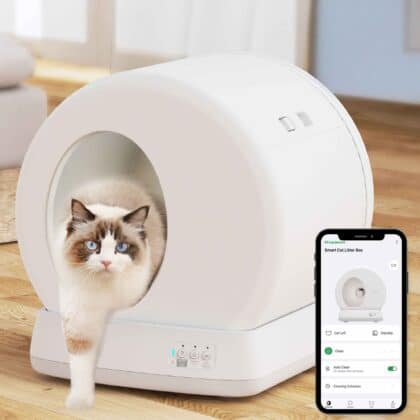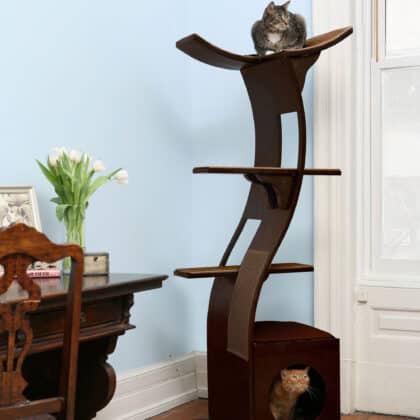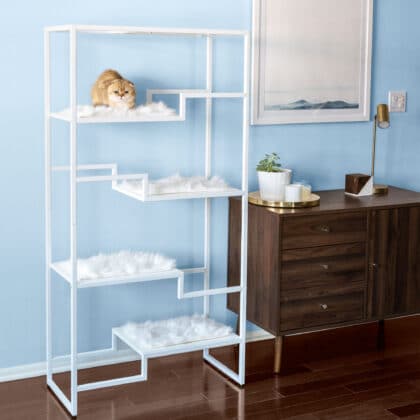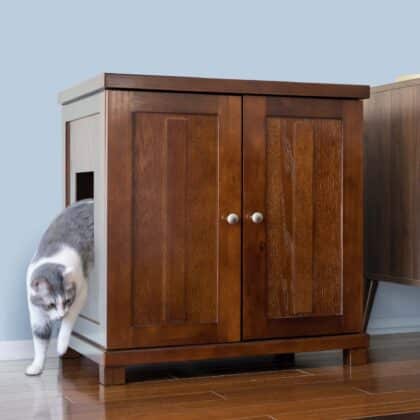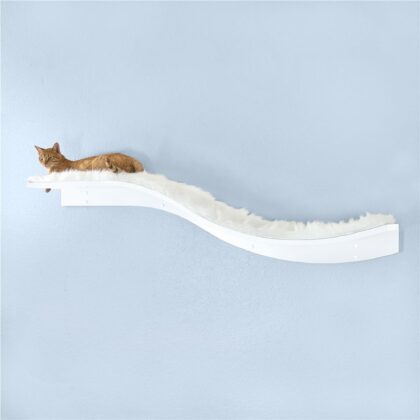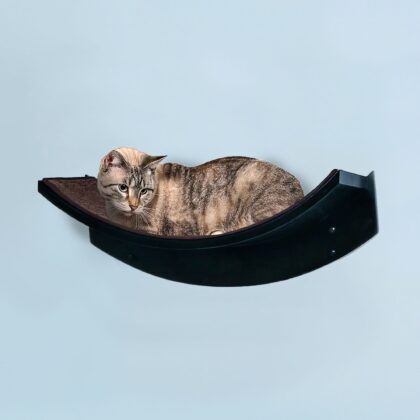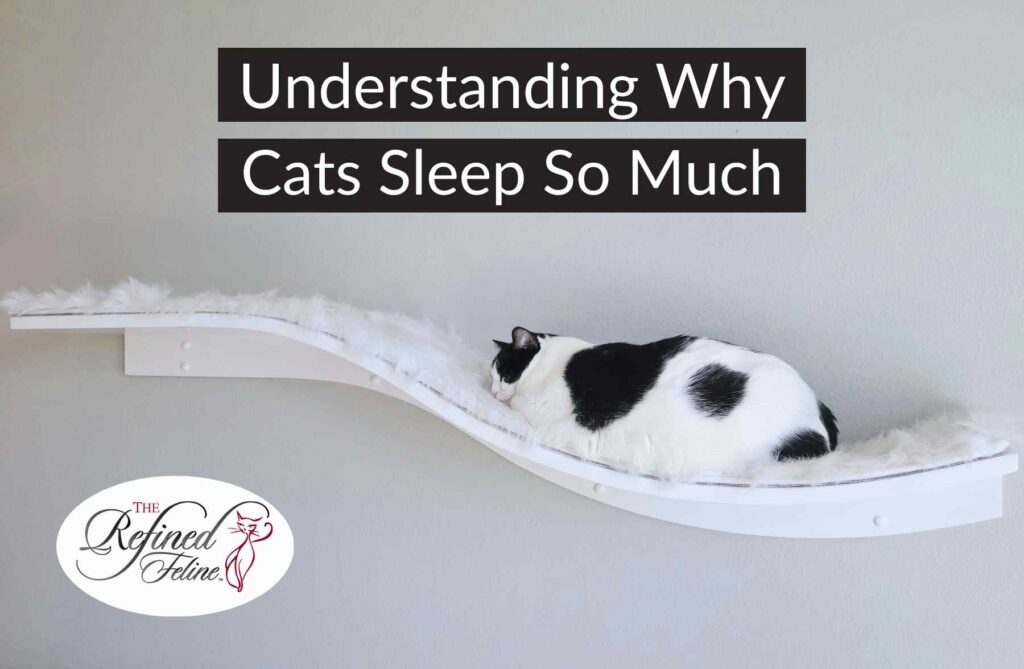
Understanding Why Cats Sleep So Much
Cats are enigmatic creatures, fascinating us with their grace and independence. Among their many intriguing behaviors, one stands out: their propensity for sleeping. If you’ve ever found your feline friend curled up in a cozy corner of a cat tower from The Refined Feline, you might have wondered why cats are always sleeping. It turns out, there’s more to these prolonged periods of slumber than meets the eye.
The Biology of Cat Naps
On average, cats sleep for about 12 to 16 hours a day, with some cats even snoozing for up to 20 hours out of 24 hours. This sleeping pattern is rooted in their biology.
Cats Are Natural Predators
As natural predators, cats are hardwired for bursts of intense hunting activity followed by rest. Even domestic cats, far removed from the need to hunt, retain this instinct.
Cat Naps Help Preserve Energy
Sleeping helps cats to conserve energy. The rest they get is equivalent to recharging their batteries, helping them stay alert and ready for activity.
Cats Are Crepuscular Creatures
Cats are crepuscular, meaning they’re most active during dawn and dusk. This sleeping pattern is an adaptation for hunting, as many prey animals are active at these times.
Understanding Cat Sleep Phases
Cats experience two main types of sleep: light sleep and deep sleep.
Light Sleep
In this dozing phase, cats remain semi-alert. They can spring into action at a moment’s notice, a trait important for survival in the wild.
Deep Sleep
During deep sleep, cats experience Rapid Eye Movement (REM) sleep, where dreams occur. Kittens and senior cats spend more time in this phase than adult cats.
Factors Influencing Cat Sleep Patterns
Several factors can influence how much cats sleep, including age, health, and environment.
Age Factor
Kittens and older cats tend to sleep more than adults. Kittens expend energy growing and learning, while older cats need more rest as their bodies slow down.
Health Aspects
While sleeping is normal, excessive sleep can sometimes indicate health issues. If there’s a significant change in your cat’s sleeping patterns, it’s advisable to consult a vet.
Environmental Influence
The environment plays a significant role in a cat’s sleep. A safe, comfortable, and stimulating environment, like having access to a Kitty Ball Bed, encourages healthy sleep habits.
Creating an Ideal Sleeping Environment
A cat’s sleeping environment is crucial for its well-being. Here’s how you can make it ideal:
Cats Need Comfortable Bedding
Provide your cat with a comfortable place to sleep. The Refined Feline’s Kitty Ball Bed, with its elevated design and soft cushioning, offers the perfect spot for your cat to curl up and rest.
Cats Need A Safe and Quiet Space
Cats prefer sleeping in a safe, quiet spot where they won’t be disturbed. A dedicated space like a room with a Lotus Leaf Cat Shelf would be ideal.
Cats Prefer Warmth
Cats love warmth. Placing their cat bed in a sunny spot or providing a heated cat bed can make their sleeping area more inviting.
The Role of Play and Activity
Balancing sleep with active playtime is vital for a cat’s health.
Interactive Play
Engage your cat in interactive play to stimulate their mind and body. This helps in using their energy effectively, leading to a better sleep cycle. Try a puzzle cat toy!
Encouraging Exploration
Providing structures like cat trees or shelves for climbing and exploring can help keep your cat active. The Refined Feline’s Lotus Cat Tower not only encourages physical activity but also enhances the aesthetic of your home.
Nutrition and Sleep
A balanced diet contributes to a cat’s overall health, impacting their sleep quality.
Cats Need A Quality Diet
Ensure your cat’s diet is nutritionally balanced to support their health and energy levels.
Cats Prefer A Consistent Feeding Schedule
Most cats prefer a consistent schedule for feeding as well as other activities. Consistent feeding times can aid in establishing a regular sleep routine.
Cats and Human Interaction
Cats are social creatures, and their interaction with humans can affect their sleep patterns.
Bonding Time
Spending quality time with your cat, such as grooming or cuddling, can help them feel secure and relaxed, promoting better sleep.
Understanding Their Space
While cats enjoy companionship, they also value their independence. Respecting their space, especially during sleep, is important.
Cat Health Check-Ups and Sleep
Regular health check-ups are essential to monitor your cat’s overall health and sleep quality. Changes in sleeping patterns can sometimes be the first indicator of health issues.
Annual Veterinary Visits
Annual check-ups or more frequent visits for senior cats can help catch any health issues that might affect their sleep.
Observe Your Cat’s Behavior
Be observant of any changes in your cat’s sleep patterns. Increased sleep or a significant decrease could warrant a vet visit.
The Impact of Seasonal Changes on Cat Naps
Cats may also rest more during certain times of the year. In winter, shorter daylight hours and colder temperatures can lead to increased sleep duration.
The Seasons Affect Cats Too
Be mindful of these seasonal changes and adjust their sleeping area to ensure comfort. For instance, during colder months, a warm and cozy bed can provide an ideal retreat.
The Joy of Cat Naps
Watching a cat slumber can be a source of joy and relaxation for cat owners. The peace and contentment they exude while sleeping can have a calming effect, making it one of the many delights of having a cat.
Photographing Cat Naps
Capturing these peaceful moments can be a delightful way to cherish memories with your pet. A cat resting on an elegant piece of catfurniture, like the Metropolitan Cat Condo, can also make for a beautiful and serene image.
Sleep Disturbances in Cats
Just like humans, cats can experience sleep disturbances. Nighttime restlessness or vocalizations can be signs of discomfort or medical issues.
Create A Sleep Routine For Your Cats
Establishing a regular routine can help minimize nighttime activity, especially for indoor cats.
Environmental Enrichment
Providing engaging activities during the day, such as playtime or exploration of cat-friendly spaces, can help expend their energy and promote better sleep at night.
The Cat’s Purr: A Lullaby for Sleep
The sound of a cat’s purr can be a soothing lullaby, not just for them but also for their human companions. This gentle sound, often made when they are content and relaxed, can enhance the bond between a cat and their humans.
Related: The Science Behind The Purr
Various Factors Can Influence A Cat’s Sleep
In conclusion, the amount of sleep a cat needs is influenced by various factors, including their age, health, diet, and environment. Understanding these needs and providing for them, whether through creating a comfortable sleeping area with products like those from The Refined Feline or maintaining a regular health routine, ensures your cat stays healthy and happy.
So, the next time you see your cat drifting into dreamland, remember that their sleep is an essential part of their well-being. By supporting their natural sleeping habits with the right environment and care, you’re not just giving them a place to rest, but you’re also enriching their life and the bond you share with them. As they doze in their favorite spot, dream-filled and content, they remind us of the simple joys of comfort and rest, a lesson we can all appreciate.


